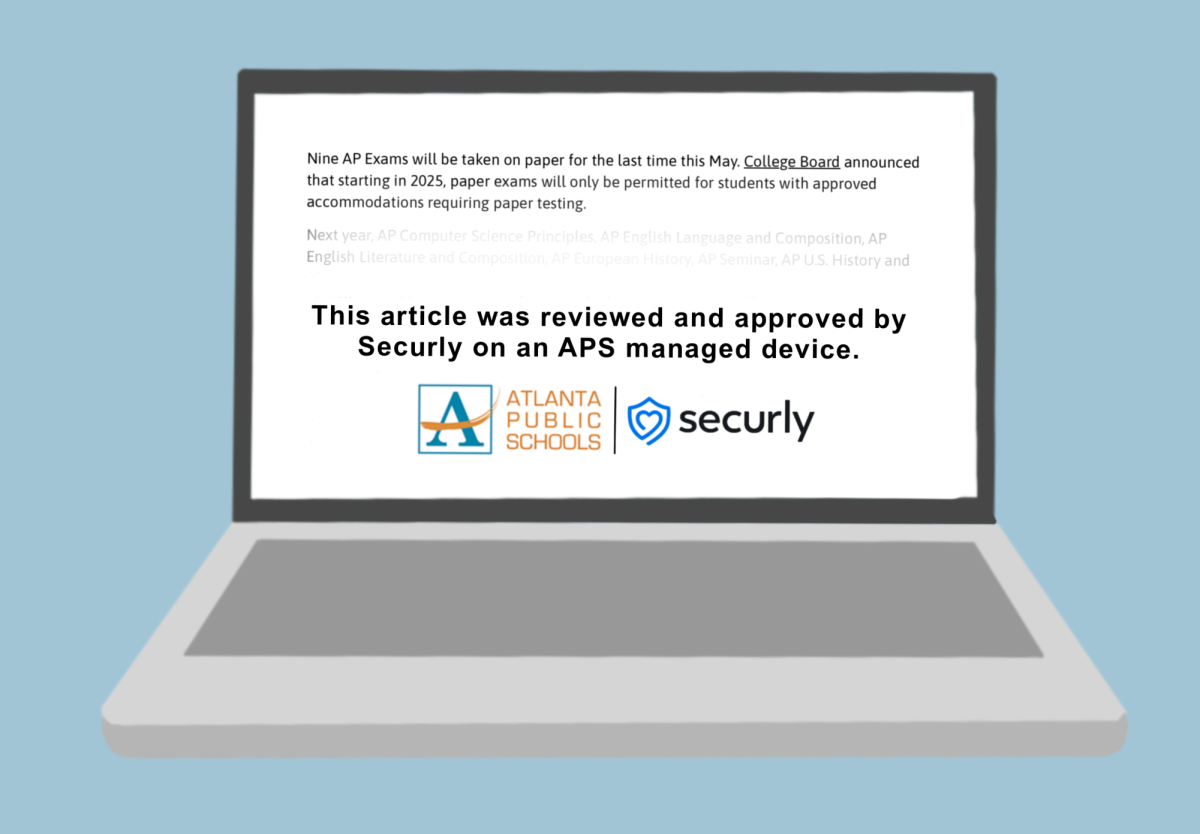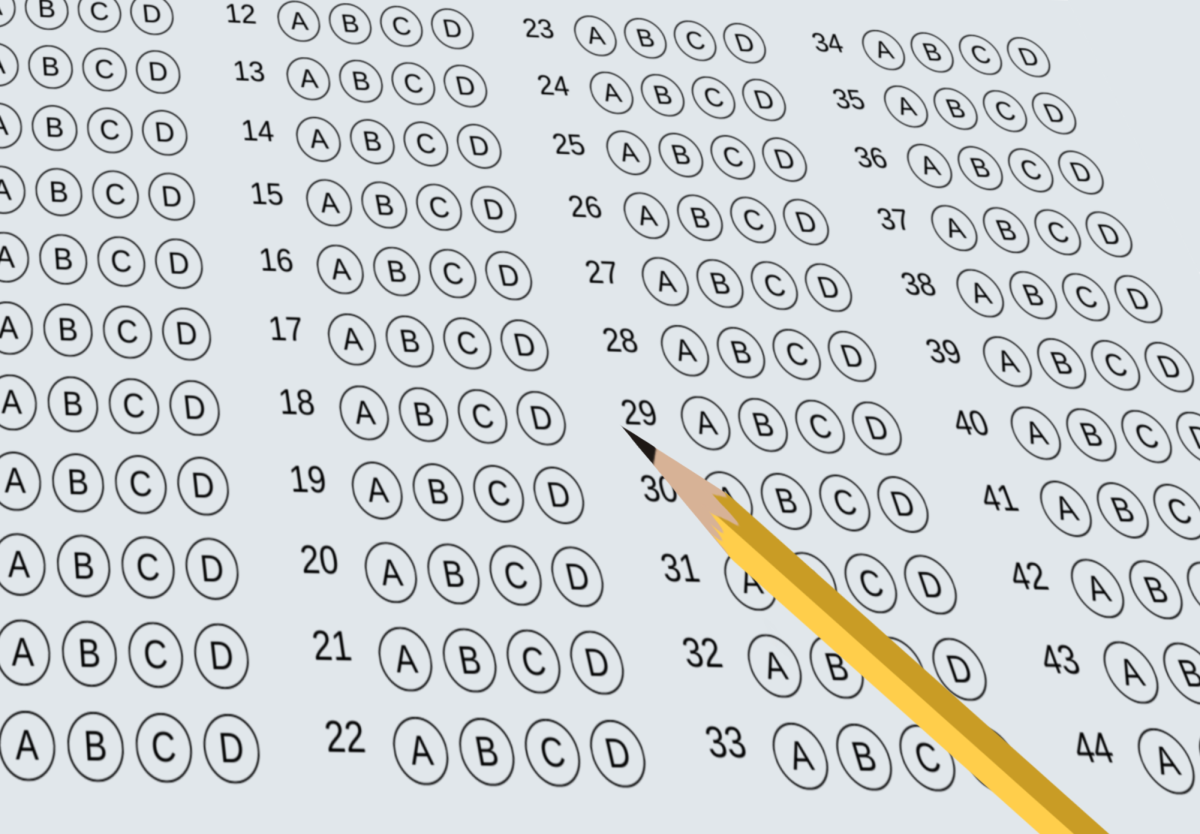Head to Head: Are AP or IB classes more beneficial on students?

The International Baccalaureate (IB) program is an advanced learning program that consists of 57 courses from elementary to high school. IB classes can be taken individually, but the program is best known for its two-year IB Diploma Programme, in which juniors and seniors can be awarded for passing courses in all six areas of study: the arts, science, math, literature, language acquisition and societal studies. While no IB courses are available at Midtown, several high schools in Georgia, such as Decatur and North Atlanta, offer the program.
Although Advanced Placement (AP) classes are the standard at Midtown, the IB program has proven to be much more beneficial to learning. The IB program provides students with a global learning experience that enhances their critical thinking skills and prepares students for college-level courses.
Unlike AP classes, IB courses focus on the international perspective, and students learn to recognize their role and impact in the world. According to the IB, it develops “inquiring, knowledgeable, and caring young people who help to create a better and more peaceful world through intercultural understanding and respect.” IB classes aim to teach students about other cultures and their values, which creates a generation of students who are internationally aware and are not confined to an American viewpoint.
Educating students on a global perspective, as compared to the mostly American-based perspective of AP classes, brings a variety of benefits to students. First of all, it builds a future workforce of individuals who are better able to learn from others and work together. Second, it helps inspire an era of international peace and understanding in the future.
Another aspect that puts IB courses above AP courses is the IB Diploma Programme. In the IB Diploma Programme, students take six courses that each address certain areas of study over two years. In comparison to the AP program, in which students can take whichever course they want, the IB Diploma ensures that students learn comprehensively about each subject, which is very constructive.
The IB Diploma looks excellent on college resumes, as colleges prefer students who have mastered all six subjects through rigorous work. In AP courses, students may only take high level classes that fit their interest, but in order to achieve the respected IB Diploma, students develop many different types of critical thinking skills as they take classes in all six areas of study.
Critical thinking skills are expanded on through IB courses, as they challenge students to think deeply and solve complex problems, while AP courses focus more on content attainment and specialization. According to a study by ScienceDirect, IB students had significantly higher critical thinking skills than students who weren’t taking IB courses.
Another difference between IB and AP courses is that performance in IB courses is primarily assessed through written assessments, while performance in AP courses are primarily assessed through multiple choice assessments. In written assessments like essays, students are better able to show their understanding of the topic by thinking deeper and applying important skills. Further, a study by eLearning found that multiple choice exams sometimes misrepresent students’ understanding of content and skills, showing why a program focused on written assessments is much more beneficial to education.
While the argument can be made that AP courses allow flexibility in course selection, IB’s rigid course structure ensures that students learn skills from all subjects. This way, students develop skills from many different fields and learn how to utilize them. Moreover, IB students are still able to take courses that fit their interests because each broad field of study in the IB program contains a variety of different possible courses.
Overall, Midtown should improve its curriculum by adding the IB program. Unlike AP classes, the IB program focuses on a global perspective and develops different critical thinking skills in all subjects. By evaluating students through written assessments, students learn to expand their comprehension of content and skills.
Advanced Placement (AP) courses have been a staple in the Midtown curriculum since the 1980s. Students are accustomed to these courses and a switch to the International Baccalaureate program would just be an unnecessary change.
AP courses have proven to show more flexibility for students interested in exploring advanced degrees. In order to get the IB diploma, a student needs to complete a two-year curriculum to actually achieve the advanced credits. With an AP curriculum, a student is committed to, at most one year and only to their selected AP course or courses, not an entire curriculum.
Because of this, IB programs can be inaccessible to transfer students or students trying to take one for the first time, as they require a time commitment of two years, which is sometimes not feasible. The implementation of IB classes into Midtown’s curriculum would likely only exacerbate the already-present higher/lower level learning cohorts present at Midtown.
Additionally, the longer length of the IB courses versus the length of a typical AP course creates a barrier to varied learning. In other words, students in IB curriculums are unable to take a variety of classes over the course of high school, while the AP curriculum allows students to diversify their schedule from year to year. In high school, students should be allowed to explore a wide variety of coursework as they prepare to commit to a major in college.
Not only that, but the cost of an AP exam is significantly less than the cost of an IB exam. The cost per exam for IB is $119.00, while the cost per exam for AP is only $98.00. While this may not seem like a big difference for a student or school district paying for a single exam, the costs add up when students are taking multiple courses throughout their high school careers.
Also, according to a recent report, more than 22,800 U.S. high schools offered AP classes, while just over 900 U.S. high schools offered IB classes. With the AP curriculum more widely available,far more opportunities are provided for students who want to push themselves. It also allows schools to draw from a larger talent pool to find skilled teachers to teach these very select classes.
Additionally, AP courses are designed to prepare students for the rigors of college-level work, while IB courses are focused on developing soft skills, such as teamwork, communication, and empathy. In short, AP courses prepare high school students for college, while IB courses do not.
Opposers to the AP curriculum argue that the IB curriculum is better for those interested in international higher education. While this may be true, most U.S. students are generally looking to attend college within the United States, rather than abroad.
While there are benefits that come from both AP and IB Classes, AP classes are a much better fit for Midtown because of their proven flexibility. The AP curriculum allows students to explore a variety of narrow subjects over a shorter period. Given that AP classes only last one year, it allows students to experiment with subjects instead of completely committing to two-year IB courses. AP classes offer wider availability, cheaper exams and better preparation for college and future employment, thus showing why the AP program is much more beneficial than the IB program.












